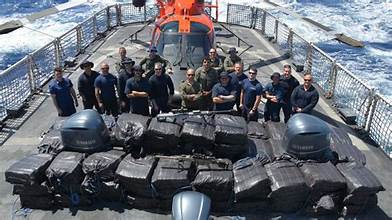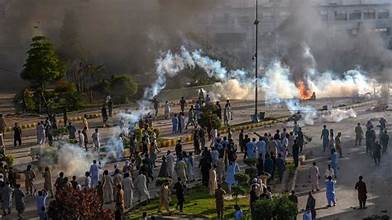The story of a Karachi-based family trapped in Saudi Arabia under allegations of narcotics smuggling has brought attention to the plight of overseas Pakistanis caught in legal battles abroad. This case highlights not only the challenges of international law enforcement but also the human suffering endured by families accused of crimes in foreign lands. The situation raises urgent questions about accountability, justice, and the role of Pakistan’s government in protecting its citizens abroad.
The Incident
According to reports, a family from Karachi traveled to Saudi Arabia with hopes of performing religious duties and visiting relatives. However, their trip turned into a nightmare when Saudi authorities accused them of smuggling narcotics. The family has denied all allegations, insisting they were unaware of any illegal substance in their possession.
The accusations led to their immediate detention and restricted movement, leaving them stranded far away from home. Such cases are not uncommon, as smugglers often exploit unsuspecting passengers by planting contraband in their luggage without their knowledge. Unfortunately, strict laws in countries like Saudi Arabia mean that even unintentional possession can result in severe penalties.
Saudi Arabia’s Stringent Laws
Saudi Arabia enforces one of the strictest anti-drug policies in the world. The possession, trafficking, or smuggling of narcotics is considered a grave crime. Convictions often lead to lengthy prison sentences, heavy fines, or even capital punishment in extreme cases.
For decades, Saudi authorities have maintained a zero-tolerance approach to drugs, believing that strict punishments are essential to preserve social and religious order. While this policy has curtailed drug trafficking to some extent, it has also drawn criticism for its lack of flexibility in cases involving innocent individuals who may have been tricked into carrying narcotics unknowingly.
The Humanitarian Angle
The Karachi family’s ordeal is more than just a legal issue—it is a humanitarian crisis. Being stranded in a foreign country with limited resources, language barriers, and no access to legal aid adds immense pressure to their mental and emotional well-being.
Children in such cases often face the greatest hardships, experiencing trauma, disrupted education, and prolonged separation from their extended family. Women, too, face unique challenges due to cultural restrictions and limited mobility in Saudi Arabia, making daily life extremely difficult under such circumstances.
The uncertainty of their future, combined with the stigma attached to narcotics accusations, has left the family in a state of despair. Whether guilty or innocent, they deserve access to fair trials, proper legal representation, and humanitarian support.

Pakistan’s Responsibility
Pakistan is home to millions of expatriates working and living in the Middle East. These overseas Pakistanis contribute significantly to the national economy through remittances. Given their importance, the Pakistani government bears a moral and diplomatic responsibility to ensure their safety and well-being abroad.
In this case, Pakistan’s Foreign Office and consular staff must play an active role in assisting the family. Immediate steps should include:
- Providing Legal Aid: Ensuring that the family has access to competent lawyers familiar with Saudi law.
- Diplomatic Engagement: Engaging Saudi authorities to ensure a transparent investigation.
- Family Support: Offering financial and moral assistance to help them cope with the crisis.
- Public Awareness: Educating travelers about risks of narcotics smuggling and how to protect themselves from exploitation.
The case serves as a wake-up call for the government to strengthen its diplomatic channels and enhance protections for Pakistanis abroad.
Karachi Family Stranded in Saudi Arabia Amid Narcotics Smuggling Accusations
Exploitation of Innocent Travelers
It is a known fact that many drug traffickers exploit the ignorance or vulnerability of innocent travelers. Unsuspecting individuals, especially families, are targeted because they are less likely to draw suspicion at airports. Luggage tampering, hidden compartments, or fraudulent shipping requests often result in travelers unknowingly transporting contraband.
This tactic makes it critical for travelers to remain vigilant. Before traveling, families should:
- Double-check their luggage before departure.
- Avoid carrying packages for strangers.
- Use locks and security straps on suitcases.
- Report any tampering signs immediately.
Preventive measures can reduce risks, but governments must also coordinate internationally to tackle the roots of such exploitation.

The Broader Picture of Pakistanis Abroad
Sadly, this is not an isolated incident. Dozens of Pakistani citizens are currently imprisoned across the Middle East for drug-related charges. While some cases involve actual smugglers, many others involve victims of deception.
According to international rights organizations, a significant portion of overseas workers face legal challenges because of inadequate legal literacy, exploitation by traffickers, and lack of government support. The Karachi family’s case highlights systemic flaws that need urgent reforms.
Need for Bilateral Agreements
One way forward is for Pakistan to negotiate bilateral agreements with countries like Saudi Arabia to ensure fair legal processes for its citizens. Such agreements could include:
- Prisoner Exchange Treaties: Allowing convicted Pakistanis to serve their sentences at home.
- Consular Access Guarantees: Ensuring detained individuals can access their embassy immediately.
- Joint Investigation Teams: Collaborating to identify drug trafficking networks instead of punishing victims.
These measures can help prevent miscarriages of justice and strengthen trust between both nations.
Media and Civil Society Role
The media and civil society also play a vital role in raising awareness about such issues. Coverage of the Karachi family’s plight has already sparked debate about the vulnerability of overseas Pakistanis. Civil society organizations can mobilize resources, provide legal aid, and lobby for government action.
By amplifying such stories, the media ensures that these cases are not ignored or forgotten. Public pressure can push authorities into action, offering hope to families caught in desperate situations.
Conclusion
The case of the Karachi family stranded in Saudi Arabia under narcotics smuggling accusations reflects the broader struggles of overseas Pakistanis navigating harsh legal systems abroad. While Saudi Arabia has every right to enforce its laws, justice demands that cases involving possible exploitation be handled with care and fairness.
The humanitarian suffering of the family must not be ignored. Pakistan’s government, civil society, and international community must work together to provide them with legal aid, moral support, and a path toward justice.
Ultimately, this case is a reminder that behind every accusation lies a human story—a family torn apart, children suffering, and a community waiting for answers. It is time to ensure that overseas Pakistanis are not left helpless in foreign lands but are protected, respected, and given the chance to prove their innocence.



